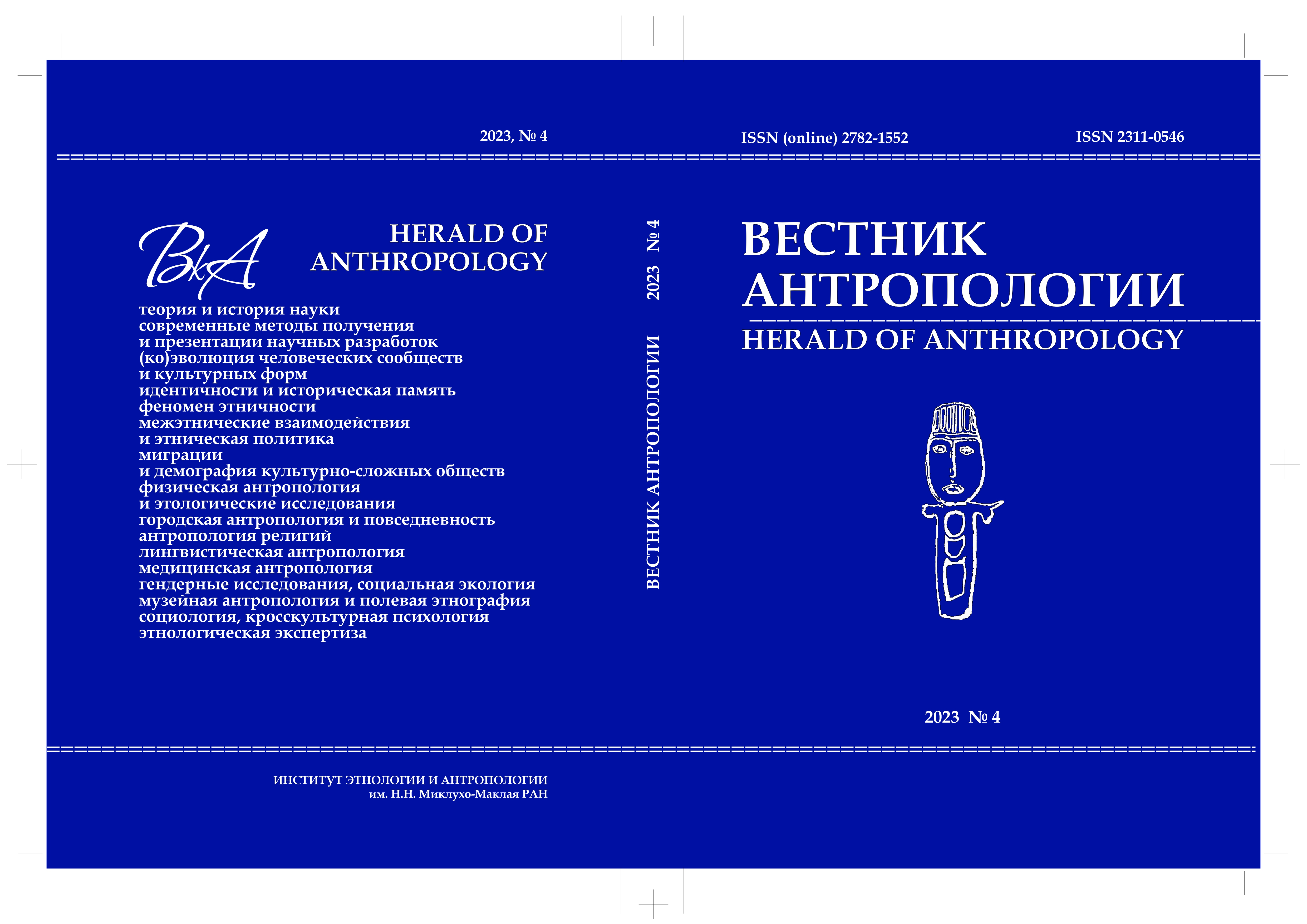Elderly People During the Pandemic: A Cross-Cultural Study in the Moscow Region and Tatarstan
DOI: 10.33876/2311-0546/2023-4/189-206
Keywords:
pandemic, Moscow, Tatarstan, pensioners, COVID-19, national solidarity, interactionAbstract
Using the method of cross-cultural analysis, the article examines interviews with elderly people, residents of the Moscow region and the Republic of Tatarstan, during the COVID-19 pandemic, both living independently and in a social institution - an Orthodox hospice. The instruments of social cohesion and healthcare among the retirement age population are described. The research was inspired by interest in the perceptions of older people's experiences and the difficulties they have faced during the pandemic. The unanimous public awareness of the situation showed that the ways to support the population during COVID times contributed to the improvement of inclusiveness in many areas of society. The situational component of COVID-19 has created special conditions for the elderly population, demonstrating an increasing need for care provided by the state, charities, volunteers and the local community. The resulting financial difficulties and the increasing need for care forced some people to seek help or move to live in specialized institutions. At the same time, interaction with volunteer organizations and social services partially contributed to the reduction of psychological stress in elder people. The social paradigm that emerged during and after COVID-19 has changed and gradually established social cooperation between older people, the state and non-profit volunteer organizations. The strategy of mutual assistance smoothed out the conditions of social isolation of vulnerable groups: the emerging decline in their standard of living and the lack of social communication did not reach a critical level thanks to volunteer assistance and mutual assistance within society. The study of the narratives of those living in an Orthodox hospice made it possible to emphasize the correct organization of the work of this institution in a pandemic, compliance with anti-epidemiological requirements, and also to identify the positive experience of cooperation between an Orthodox hospice and volunteers. The author hopes that gained experience will facilitate the further introduction of an inclusive agenda into the institutional environment of social actors.





















